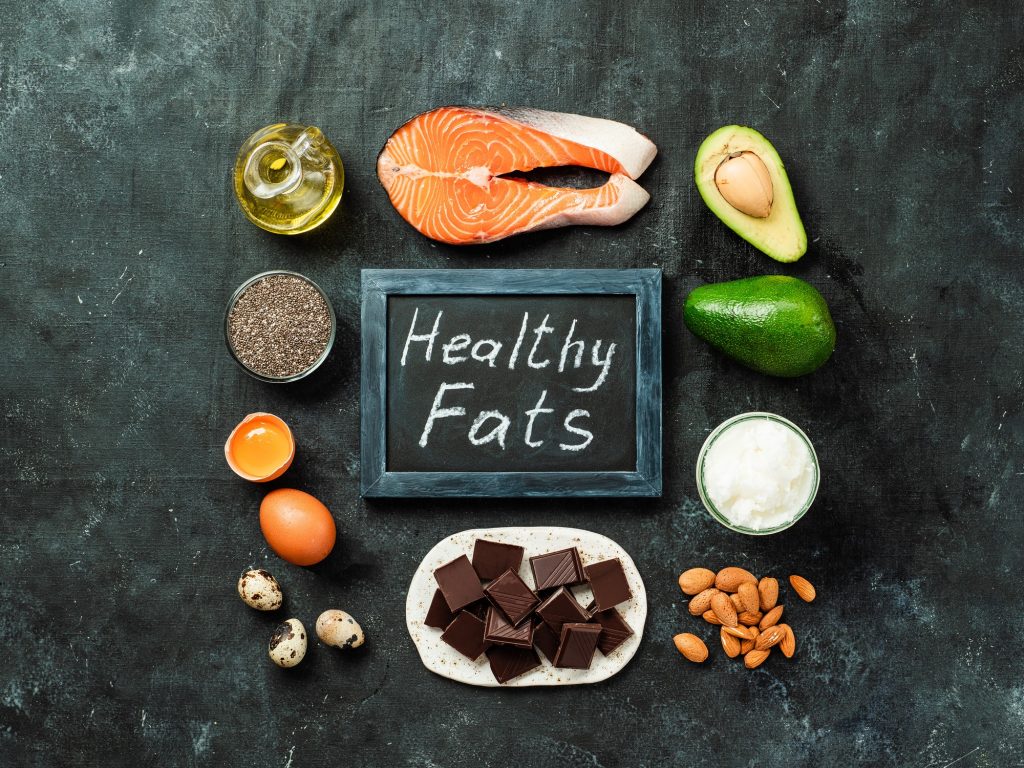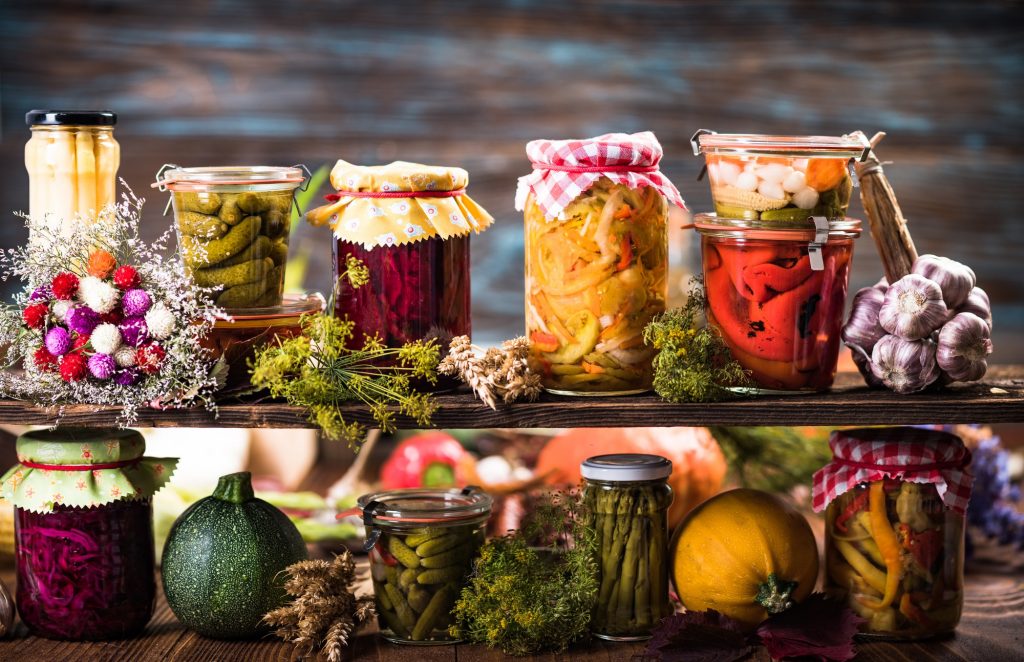Your body’s immune system is a fantastic machine. It is accountable for keeping your body safe from outside intruders like viruses, bacteria, fungi, and contaminants.
There are two main parts of your immune system: the part you were born with (innate or non-specific system) and the part you develop from direct exposure to the environment (adaptive gotten, or particular system).
Your body’s immune system is made from different organs, cells, and proteins– skin cells, blood, bone marrow, tissues, and organs like the thymus and lymph glands.
A strong body immune system is your best defense against illness and infection. Without it, you would have no way of eradicating harmful compounds or modifications within the body.
Your immune system has 3 main jobs:
- To combat pathogens (disease-causing “bacteria”) like infections, germs, fungi, or parasites and get them out of your body
- To acknowledge and neutralize hazardous compounds from the environment
- To fight disease-causing modifications in the body, like cancer cells
Your immune system is activated by antigens– things the body does not acknowledge as belonging there. These are proteins on the surfaces of bacteria, viruses, and fungi.
When the immune system cells come into contact with these antigens, an entire series of processes is stimulated in your body’s immune system.
The bright side is that when your body’s immune system is available in contact with a germ, it will recognize that germ if it sees it again. This is why vaccines work to safeguard you against specific illnesses.
In this unique report, we’ll have a look at the top all-natural and safe immune boosters that everybody can make the most of to strengthen your immune response, increase your resistance to disease and infection, and help you recover more quickly if you do become ill.
Table of Contents
Get A Lot Of Sleep

Not getting adequate sleep can reduce your immune reaction and leave you more likely to succumb to infection.
In a research study of 164 adults, the ones who slept less than 6 hours a night proved more likely to catch a cold than those who slept longer.
When you’re sleep-deprived, your body makes tension hormones like cortisol to keep you awake and alert– which can reduce your immune system.
And you might also take longer to recover if you’re sleep-deprived. That’s due to the fact that your body can’t make enough antibodies to combat off illness if you’re not rested.
Your body likewise launches unique proteins (cytokines) that help your immune system– however, they only do that while you’re asleep. Your body does a great deal of healing and restoring while you’re asleep.
Normal adults should attempt to get 7 or more hours of sleep every day to function appropriately.
Teens require eight to ten hours a night and younger children and infants require to get up to 14 hours of sleep to be at their finest.
People who got a complete eight hours of sleep had greater levels of T-cells than those who slept less, according to a 2019 study. And a 2015 research study discovered that those who get seven hours of sleep are four times less likely to come down with a cold than those who were sleep-deprived.
Most modern individuals do not get sufficient sleep, which is an embarrassment since it’s a simple fix to a typical issue.
Some suggestions for getting a good night’s sleep include limiting your screen time beginning two to three hours prior to your bedtime. The blue light from the TELEVISION, computer screen, or cellphone has actually been shown to disrupt your body’s natural sleep cycle (circadian rhythm) so shut them all down.
Another thing to limit is caffeine use. If you’re having a difficult time getting to sleep, attempt avoiding caffeine afternoon. Even if you believe your body is used to it, a little caffeine can go a long way.
You can likewise attempt oversleeping a totally dark room that is cooler than the rest of your house, as your body cools off when it’s all set to sleep.
Prevent extremely stimulating books or conversations right prior to bed, too. They get your adrenaline levels up and you’ll have more trouble relaxing back down.
Go to bed at the same time every night, even on your day of rest, and have actually a set sleep schedule you follow prior to entering the bed.
If you’re still having problems with your sleep, speak to your medical professional.
Getting a good night’s sleep is necessary to a healthy body immune system, as well as lots of other of your body’s systems. You can’t carry out at your finest if you’re sleep-deprived.
Stay Active

Prolonged intense exercise has actually been revealed to reduce your immune response– however, moderate exercise really improves that reaction. Research studies reveal that even one session of moderate workout can increase vaccine effectiveness in those with compromised immune systems.
“Working out is a powerful way to increase your immune system,” says Mark Moyad, MD, MPH, Jenkins/Pokempner director of preventative and alternative medicine at the University of Michigan Medical.
Exercise flows your antibodies and white blood cells more rapidly, which helps them detect bacteria quicker. “Being active in this manner also reduces stress hormonal agents, which lowers your opportunities of getting sick,” Moyad includes.
According to a current research study of over 1,000 people, those who exercised a minimum of five days a week had practically half the risk of coming down with the common cold than the more inactive folks.
Regular moderate exercise can minimize swelling, too, and that is known to enhance your immune system. Exercise can likewise help your immune cells to regenerate regularly.
Examples of moderate exercise include 30 to 60 minutes of brisk walking, running, swimming, steady cycling, and light trekking 3 to five times a week.
Notice that the majority of these are related to the outdoors. There’s a great factor for taking your workout outside.
Sunshine can stimulate your T-cells, unique parts of your immune system that assist eradicate infection. And being outside brings you into contact with phytoncides and other plant items that can increase your immune function. It also increases Vitamin D levels in your body, which helps your body’s immune system further.
You should also be doing strength training exercises two times a week to remain at your healthiest. The CDC (Center for Disease Control and Prevention) suggests two and one-half hours of moderate-intensity exercise weekly along with one hour and fifteen minutes of high-intensity aerobic workout.
So, you need to work out frequently and get enough sunlight to improve your immune system and increase your overall health.
Consume Whole Plant Foods

Today’s processed diet is a significant reason for swelling in the body. Our forefathers consumed more raw fruits and vegetables and physicians have shown this is a much healthier diet plan for your immune system (in addition to other systems in your body).
Entire plant foods are rich in antioxidants and nutrients that reinforce your body’s immune system.
Registered dietician Julia Zumpano, RD, LD, had this to state about consuming your fruits and vegetables: “Try to consume a wide array of foods and goal to consume vegetables and fruit from every color of the rainbow.“
Consuming a colorful diet is not just artistically pleasing, however, fresh fruits and veggies are far better for you than processed foods and supplements.
Protein is also needed for immune health. Amino acids assist develop and preserve immune cells and a low-protein diet may minimize your body’s capability to eliminate off infection.
In a 2013 research study, mice with a diet of just 2% protein were more seriously impacted by influenza than mice who consumed a regular (18% protein) diet.
There are three main vitamins required by your immune system: Vitamin C, Vitamin B6, and Vitamin E.
Vitamin C is one of the vital vitamins needed by your immune system. It’s crucial for you to get a lot of natural Vitamin C from your diet due to the fact that your body doesn’t keep that vitamin.
Anything you don’t use is flushed from the body by your kidneys.
Fortunately is that you can quickly get enough Vitamin C from food without investing money in supplements. Fruits and vegetables rich in Vitamin C include citrus fruits (and their juice), strawberries, bell peppers, broccoli, kale, and spinach.
Another immune system-boosting vitamin is B6 or pyridoxine. It’s a water-soluble vitamin that isn’t made in your body, so you need to consume the best foods to get enough for your immune system.
Natural sources of B6 include chicken or turkey and cold-water fish like salmon or tuna. You can also get Vitamin B6 from green vegetables and chickpeas (the main ingredient in hummus). So even if you’re vegan you can get a lot to reinforce your immune system.
Vitamin E is a fat-soluble vitamin that is a powerful anti-oxidant. It’s discovered in nuts, seeds, and spinach. You do require to be more mindful with Vitamin E because, because it’s saved in your fat, can actually build up in your body to hazardous levels.
Never ever take Vitamin E supplements unless your doctor specifically tells you to do so.
If you’re older or feeling especially worn out, you might also have your doctor examine your Vitamin D levels. Many people get enough Vitamin D from merely going outside, where sunlight promotes your body to make the vitamin.
If your doctor states you require more, taking 400 IU daily has actually been shown to increase disease-fighting cells like T-cells. Foods that contain Vitamin D include fatty fish like tuna, mackerel, and salmon, beef liver, cheese, and egg yolks.
Additional nutrients your immune system requirements are zinc, folate, iron, and selenium according to the Academy of Nutrition and Dietetics.
Getting these from your food is better than using supplements, however, you do require each of them to support your immune system.
Eating more whole plant foods can really enhance your immune system.
Eat Healthy Fats

“80% of your immune system is found in your gut,” states Yufang Lin, MD, of the Center for Integrative Medicine at the Cleveland Clinic, “so when it’s healthy, we tend to be able to fight off infections much faster and better. When it’s not, our body immune system is weaker and more susceptible to fighting off infection.“
Healthy fats are those with anti-inflammatory homes, like the ones discovered in olive oil, nuts, and fatty fish like salmon. These may increase your body’s immune reaction by reducing inflammation.
Swelling is a natural reaction to tension or injury but chronic swelling, such as can be triggered by a high-fat, extremely processed diet plan, can suppress your immune system’s actions.
Olive oil has actually been clinically linked to a lower danger of type 2 diabetes and cardiovascular disease. It’s highly anti-inflammatory and may help your body eradicate dangerous viruses and germs. Omega-3 fatty acids, like the ones found in cold-water fish (like salmon) and chia seeds, have also been revealed to combat inflammation and support your immune system.
In general, Dr. Lin suggests people concentrate on a Mediterranean style of eating. That suggests a diet plan abundant in fruits, vegetables, whole grains, and healthy fats. “This eating pattern is high in nutrients such as Vitamin C, zinc, and other antioxidants shown to help in reducing inflammation and fight infection,” she describes.
Grownups between 65 and 70 years old who followed a Mediterranean diet showed small boosts in disease-fighting cells (such as T-cells) according to a 2018 research study published in Frontiers in Physiology.
Healthy fats can help promote your immune system and enhance your body’s response to disease or infection.
Consume Probiotic-Rich Foods

Fermented foods like yogurt, kimchi, sauerkraut, kefir, and natto are abundant in helpful bacteria called probiotics. These are the same germs that reside in your gut and assist your gastrointestinal system work effectively.
Gut health and resistance are closely interrelated. Research study has actually suggested that a healthy gut bacteria population can assist your body immune system discriminates in between healthy body cells and damaging invaders.
In one research study, children who consumed just 2.4 ounces (70 ml) of fermented milk daily had around 20% fewer childhood infectious diseases compared to the control group who didn’t drink probiotics. If you do not routinely consume fermented foods, a probiotic supplement may be a good idea.
In another study of individuals contaminated with rhinovirus, those who took a supplement of the germs Bifidobacterium animals had a more powerful body immune system response and lower levels of the infection in their nasal mucus than the control group did.
A typical daily dose of probiotics is between 1 and 10 billion CFUs (colony-forming units) daily. The secret is to take these probiotic supplements or foods consistently to preserve a healthy gut and support your immune system.
It’s best to eat probiotic-rich foods like yogurt or sauerkraut, but if you can’t include those in your regular diet, you must think about supplements to improve your immune action
Limitation Sugar Intake

The latest research states that sugarcoated and processed foods can contribute substantially to weight problems, which can in turn decrease your body’s immune system reaction.
One study of around 1,000 individuals found that obese people who got their yearly influenza shot were twice as likely to still get influenza afterward than non-obese individuals who got their vaccine.
Cutting your sugar and processed food consumption can reduce inflammation. It likewise helps in weight loss, obviously, and minimize your risk of developing conditions like a heart problem or type 2 diabetes.
And given that all three conditions– obesity, diabetes, and heart problem– are understood to compromise your body’s immune system, “curbing your sugar intake is a fundamental part of an immune-boosting diet,” according to Healthline.
Attempt to limit your sugar consumption to 5% or less of your total daily caloric intake. If you’re on a 2,000 calorie a day diet plan, for instance, you must get less than 2 tablespoonfuls (25 grams) of sugar in one day.
Decreasing your sugar and processed foods can not only assist you to drop weight, however, can enhance your immune system.
Stay Hydrated

Dehydration is when your body doesn’t get adequate water. It can reduce your physical performance, mood, focus, digestion, and heart and kidney function. These can likewise reduce your resistance to disease.
Your very first tip that you may not be getting enough water is a typical sensation– thirst. You may also get a headache. You should be consuming sufficient fluid to develop pale-yellow urine.
Water is best because it does not have any included calories. Try to avoid too many sweetened drinks like fruit juice, sweet tea, or sodas.
While those can assist hydrate you, the sugarcoated can minimize your immune reaction and negate the positive effects of drinking adequate fluid.
Remaining hydrated can improve your immune health. Water assists your body make lymph, which brings the body immune system cells like white blood cells. Try eating hydrating foods like cucumbers, melon, or celery.
Attempt to prevent exaggerating diuretic or water-reducing substances like caffeine.
As a general guideline, you should drink whenever you’re thirsty and continue consuming till your body no longer signals it needs liquid. You might require more fluid if you exercise, work outside, or live in a hot environment.
Bear in mind that as you age, your body is less able to signal its requirements for liquid, so older individuals are less most likely to drink enough. If you’re over 55, you ought to make sure you consume enough even if you do not feel especially thirsty.
Although hydrating doesn’t have a direct result on your body’s immune system, it’s crucial to your total health and therefore, essential to your immune system.
Lower Stress

There’s a strong link between your immune system and your psychological health. Tension and stress and anxiety make bad bacterium fighters.
Studies have shown that just having anxious thoughts can decrease your immune action in as low as half an hour.
Constant stress makes it even harder to combat off viruses and bacteria. Tension makes your body produce cytokines, molecules that activate swelling that can minimize your immune response.
“When you’re under persistent stress or anxiety,” says Dr. Mark Moyad, “your body produces stress hormones that reduce your body’s immune system.“
Research at Carnegie Mellon University found that if you’re stressed out, you’re more likely to come down with the cold.
In one research study, healthy grownups were exposed to the cold infection, then quarantined for 5 days and kept track of. Those who reported stress were two times as likely to get sick.
“In addition,” Dr. Yufang Lin says, “People who are stressed are less most likely to focus on other healthy routines, like eating right and getting enough sleep, which can affect immunity.“
There is also evidence that grief if it lasts a very long time, can decrease your body’s immunity. This result can last for as much as 6 months– and can go on even longer if your sorrow is deep or does not ease.
Speak with a physician or therapist if you experience stress and anxiety or grief that doesn’t appear to be slowing down in an affordable period.
You can’t avoid tension or sorrow, you can use techniques to manage it much better. A 2012 research study in Annals of Internal Medicine found that grownups who either had a day-to-day exercise routine or carried out mindfulness meditation were less likely to get sick with a breathing infection– or that, if they did get ill, missed fewer days at work.
Workout increases the release of endorphins, hormones that minimize tension and produce sensations of pleasure. This makes it a fantastic method to combat off stress. Dr. Lin says, “Since stress negatively affects our body immune system, this is another method exercise can enhance immune reaction.“
Mindfulness is a method of focusing your ideas on the here-and-now instead of worrying about the future or worrying over the past.
Stress can negatively impact your immune system but managing that stress can moderate or negate that impact.
Routine exercise assists, as does mindfulness meditation that focuses your ideas on what’s going on immediately around you instead of letting you keep fretting.
Quit Smoking

Cigarette smoking damages your lungs, which are 2 of the primary entrances into your body. Nicotine and cannabis both decrease your lungs’ capability to eliminate off infection and both increase inflammation. And yes, vaping still counts as smoking if you’re talking about your immune system.
“Chemicals released by cigarette smoke– carbon monoxide, nicotine, nitrogen oxides, and cadmium– can interfere with the growth and function of immune cells like T-cells, cytokines, and B-cells,” per a 2016 review in Oncotarget. Smoking cigarettes likewise makes infections even worse, particularly if they’re in the lungs (like pneumonia, flu, and tuberculosis).
And overdoing the alcohol even when can slow your body’s ability to fight off bacteria for a full 24 hours. In time, drinking excessively can harm your body’s ability to fix the damage. This is why people who consume are more prone to health problems like liver illness, pneumonia, tuberculosis, and specific cancers. If you’re going to indulge, stick to one beverage a day for women and 2 drinks a day for men. Moderation in all things.
Smoking and drinking too much are damaging in lots of ways. One of the things you might not have actually thought about is your immune system.
There is a multitude of ways to stop cigarette smoking and drinking. If you’re having trouble, see your medical professional for some expert help to get yourself healthy again
Conclusion

Your immune system is an amazing part of your body. It acknowledges germs like infections, germs, and fungi and fights them off. It likewise reduces the effects of harmful substances and battles disease-causing modifications in the body.
“Think of the immune system as an orchestra,” states Lauren Bedosky for Everyday Health. “For the finest efficiency, you want every instrument and every artist in the orchestra to perform at its finest.“.
You do not require one musician unexpectedly playing double speed or one instrument blasting out at leading volume. The same chooses your immune system.
There are lots of things you can do to boost your immune system and help your body fight off illness. Some of these you’ve heard all your life: exercise routinely, stop smoking cigarettes and drinking, get enough sleep, and handle your stress. One additional method you’re most likely currently doing is to keep your chronic conditions under control.
“Chronic conditions like asthma, heart disease, and diabetes can affect the immune system and increase your danger of infection,” says Bedosky.
A 2019 research study in Current Diabetes Review discovered that individuals with type 2 diabetes who don’t keep their blood sugar levels under control may develop a persistent, low-grade inflammatory reaction that deteriorates their immune systems.
“If you manage your chronic conditions better,” states Dr. Lin, “you’ll free up more reserves to assist your body fight off infection.” So, remain on top of your persistent conditions– take your medications, keep your physician sees, and maintain any healthy routines that keep that condition at bay. “Your body immune system will thank you,” states Bedosky.



